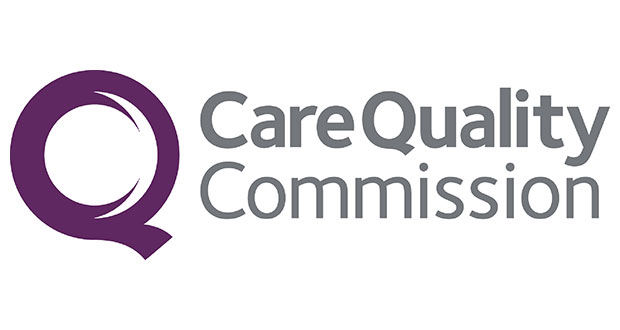CCTV For Communal Areas Of Care Homes-Debate Heads To Parliament
 Dominic Grieve MP has sponsored a debate which will take place on 5 September at Westminster Hall calling for CCTV for communal areas of care homes.
Dominic Grieve MP has sponsored a debate which will take place on 5 September at Westminster Hall calling for CCTV for communal areas of care homes.
Over the years, there have been a number of reported cases of abuse in care homes, sometimes exposed by secret filming. In particular, BBC Panorama’s Behind Closed Doors (2014) exposed cases of abuse, neglect and poor care. There have also been instances where individual families have secretly filmed inside care homes to expose poor practices and stealing from patients.
This has led to calls for better supervision of practices within care homes, including the use of CCTV. The Care Campaign for the Vulnerable has been campaigning for “safety monitoring to be made mandatory in communal areas in ALL dementia care homes across the UK.” Its website highlights the coverage of this campaign in the media.
In the 2015-17 session, an online petition to Install CCTV cameras in all care homes to protect the vulnerable people gained 12,896 signatures. In response, the Department of Health said:
“The Government does not object to the use of CCTV cameras in care homes on a case by case basis. Care home owners should consult with and seek the consent of residents and their families on their use.”
“The abuse or neglect of vulnerable people is deplorable. The Government has strengthened the powers of the Care Quality Commission (CQC) to prosecute providers for unacceptable care, including abuse.”
“The Government recognises that cases of abuse and neglect have been exposed as the result of hidden cameras. We acknowledge that there are occasions when it may be appropriate for their use to be considered.”
The CQC has published guidance for care homes and the families of residents on the issues that should be taken into account when deciding whether or not to use CCTV or other forms of covert surveillance. The guidance is available on CQC’s website at http://www.cqc.org.uk/content/using-surveillance-information-service-providers.
Current guidance
When asked whether they had assessed the potential of CCTV to tackle abuse in care homes, the Government said in February 2018:
“No assessment has been made of the potential effect of installing CCTV cameras in care homes, however, we expect serious allegations of abuse and neglect to be thoroughly investigated and prosecutions to be brought where this is warranted.”
“The abuse of people who depend on care services is completely unacceptable, and we are determined to stamp it out. That is why we introduced the new wilful neglect offence which came into force in April 2015.”
“We have made it clear, in statutory guidance to support implementation of the Care Act 2014, that we expect local authorities to ensure that the services they commission are safe, effective and of high quality. We also expect those providing the service, local authorities and the Care Quality Commission to take swift action where anyone alleges poor care, neglect or abuse.”
Pressure groups such as the Care Campaign for the Vulnerable see CCTV as an effective way of gathering evidence against negligent staff and ensuring that care workers are not falsely accused (as suggested in this Daily Express article). As Kevin Macnish, writing in The Conversation, suggests, the presence of CCTV is likely to act to some extent as a deterrent to abuse; studies have shown it to do so in other environments.
The idea, according to a study reported in the Times, is particularly popular amongst families of care home residents. Dominic Grieve MP has publicly offered his support for the campaign: talking to the Daily Express, he said,
Seeing potential problems that exist in care environments, the arguments in favour are very strong. I think this is achievable and could become law.
We have large numbers of vulnerable people in care homes and we want to provide them with proper standards of care. Incidents of them being abused are scandalous.
They are also criminal offences, so we have a strong incentive for trying to make sure it doesn’t happen.
Other stakeholders and commentators have voiced concerns about mandatory CCTV. Issues of privacy have been raised, given that sensitive activities such as bathing and washing are carried out in care homes: indeed there are cases where residents have voted against the idea (as discussed in the Times). Some fear that the installation of CCTV will lead to a negative atmosphere amongst personnel; polls of staff show mixed feelings towards the notion (see for example survey results reported by The Conversation and the Guardian).
Kevin Macnish, writing in The Conversation, argues that although high profile, the shocking cases of abuse in care homes have only occurred in a small minority of institutions, so it does not seem to be worth the risk of increasing the feeling of distrust and vulnerability amongst staff and patients via CCTV.
Furthermore, it has been suggested by organisations such as Age UKthat while CCTV might make it harder to people to abuse or take advantage of tenants, it will not make such actions impossible, and might provide “false reassurances”. Professionals, such as Dr Peter Carter (former Chief Executive of the Royal College of Nursing) has highlighted that CCTV will only pick up gratuitous cases of abuse, whereas more subtle cases of neglect will be harder to detect: better recruitment, training and managerial supervision of staff in this case would be better to monitor such behaviours.






